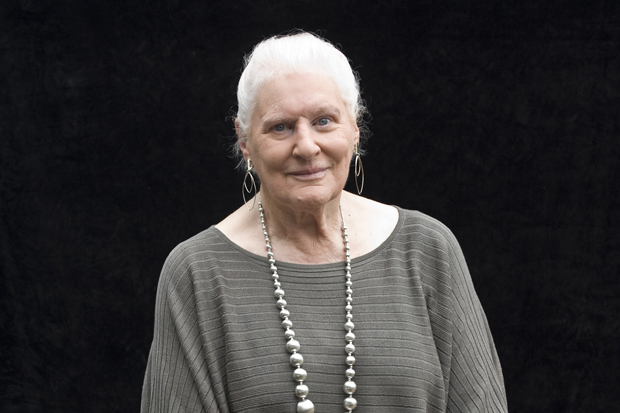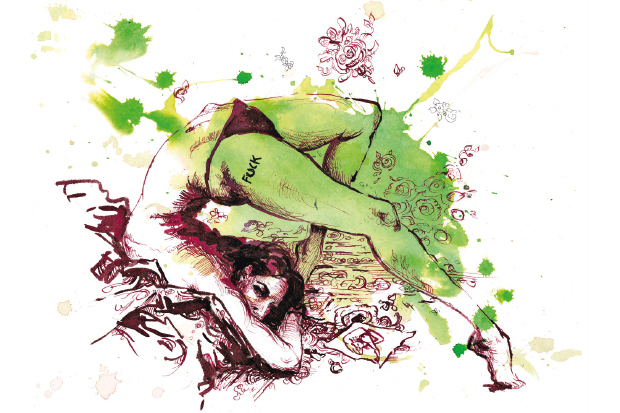This novel, John Irving’s 14th, took the sheen off my Christmas, and here are the reasons.
- The comments on the back of the book (‘Irving is the wisest, most anguished and funniest novelist of his generation’ — Chicago Sun Times) made me feel lonely. He might have been wise, anguished and funny in The World According to Garp, 33 years ago. But never once in these 458 pages did I laugh, sympathise, or glean an ounce of wisdom. Instead, I lost confidence that reading novels could ever be a pleasure.
- Take the main character, Juan Diego, a ‘dump kid’ growing up on one of the vast rubbish dumps on the edge of Oaxaca (‘Wahaca’). I enjoy reading about a dump as much as the next person, so was hopeful. But the picture Irving paints of the dump is two-dimensional: fires, stray dogs, dead dogs and burning books. The young Juan Diego reads the dumped books before they’re burnt, thus educating himself. The ‘dump boss’ runs over his foot, so he has a limp for life. Half of the novel is him being 54 and visiting the Philippines as a successful, limping novelist. The other half is him dreaming about his childhood. The dreams are intensified by the beta-blockers he takes: so, pill-induced memory-dreams, and more of them than you could bear me to tell you about.
- He has erections in his Cathay Pacific pyjama suit. I didn’t want to know about his erections — all the less because they are brought on by taking either a whole or a half Viagra pill (Irving always tells us the precise dose). On his flight to the Philippines he meets a mother and daughter, Miriam and Dorothy, fans of his novels, and becomes sexually obsessed with both of them. Dorothy calls his penis ‘one alert-looking guy’.
- Juan Diego’s younger sister Lupe is a mind-reader. She gets eaten by a lion when she and Juan Diego go and work in a zoo, so we only see her in the childhood part. She knows what everyone’s thinking, including the lions in the zoo. But she can’t predict the future. This fantastical element is not believable and adds nothing to the novel.
- Irving is addicted to ‘elegant variation’. A writer of his stature should know better. Or his editors should have dared to mention it to the veteran bestselling author. (There: I just used one, to prove how annoying it is.) The Jesuit Edward Bonshaw, for example, who likes to whip himself, is described as ‘Edward Bonshaw’, ‘Señor Eduardo’, ‘the young midwesterner’, ‘the Iowan’, ‘the flagellant’, ‘the flagellating Iowan’, ‘the excited American’, ‘the scolastic’, ‘the passionate new teacher’, ‘the young American missionary’, ‘the colourfully dressed missionary’ and ‘the zealot’.
- Irving likes showing off his Spanish. The dump children are ‘los niños de la basura’. When he uses a bit of Spanish he makes sure it’s translated for us straight away — and we’re aware that it’s John Irving stepping out of the story to translate. (‘The noun pastora means “shepherdess”.’) I found this patronising.
- It’s hard to work out what this novel is really about. Vacuous sentences like this don’t help:
The chain of events, the links in our lives — what leads us where we’re going, the course we follow to our ends, what we don’t see coming, what we do — all this can be mysterious, or simply unseen, or even obvious.
There’s loads about the Catholic church, Jesuits and statues of the Virgin Mary. On one flight, Juan Diego is so engrossed in his dream about the Virgin Mary that everyone thinks he’s dead. Normally I love reading about holiness. But I got nothing from this holy mess.
Got something to add? Join the discussion and comment below.
Get 10 issues for just $10
Subscribe to The Spectator Australia today for the next 10 magazine issues, plus full online access, for just $10.
Available from the Spectator Bookshop, £16.99. Tel: 08430 600033
You might disagree with half of it, but you’ll enjoy reading all of it. Try your first month for free, then just $2 a week for the remainder of your first year.














Comments
Don't miss out
Join the conversation with other Spectator Australia readers. Subscribe to leave a comment.
SUBSCRIBEAlready a subscriber? Log in